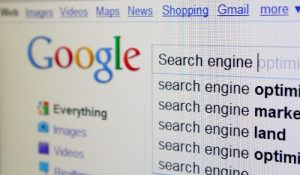Introduction
The Internet has brought people from all over the world close together, and it is gradually becoming a way of communication between people. In regions where contact and information flow freely, the activities of the internet are influencing people’s ideas about the way democracy and freedom operate (Noble, 2018). Nevertheless, the traditional miscommunication phenomenon of the old media, i.e., the inaccuracy of information, is once again reproduced on the Internet, replicated up by offline social relations and amplified by publicly trusted search engines such as Google (Noble, 2018).
The structural biases scattered across the Internet do not originate from a single event but are dispersed across various social structures. This article will explore how several elements, gender, racial discrimination and social class, have subjected the Internet to structural inequalities in its development.

Google: discrimination by the algorithm
Noble (2018) presents a sexist phenomenon in which black girls are explicitly sexualized in the rankings of Google, a search engine, and it is deprived of its political and social significance. Google is operating through this effective paid advertising for profit (Noble, 2018). In an age where everyone uses search engines, black women are inadvertently being stigmatized, and there are even some porn sites that openly label black women as their paid ads to be ranked at the front of the search engine sequence. The way women are ranked on the page underscores their lack of status in history and today’s society and that these marginalized groups are more likely than others to be misrepresented and misclassified (Noble, 2018). Most people don’t care about the difference between these paid ads and the actual facts, they only care about what they see, and this information is being spread by leaps and bounds through the Internet. Noble (2018) suggests that within the current social context and algorithmic constraints, the commercial search can no longer provide social-historical meaning to people who have been over-racialized and sexualized and are experiencing more pain.

Google Inc. created the algorithmic program to increase profits, to understand people while attracting more of their friends and family to form a circle, and the mutual hold is that they are kept. The ranking of black women is more reflective of what people deep down want to see more. After all, people don’t search, and advertisers don’t bother to spend a lot of money to create ads. With the increasing popularity of the Internet, many people of color (women in remote areas who previously did not have access to the Internet) began to fight for their rights. Now it seems that searching for black women is no longer the pornographic image it was before.

Treatment of different colors
Employment and career discrimination against women is widespread in society, men are often paid more for the same salary, and people are treated differently because of their gender; this phenomenon is perpetuated on the internet. A “bro-culture” has emerged in Silicon Valley (Lusoli & Turner, 2020), they formed a separate circle of brothers to the exclusion of other races. Many of the software systems that people rely on are written by programmers with the same human biases and misconceptions that encode these emotions into the software that governs people’s lives (Noble,2018). This is despite that it does not infringe on their interests because it is the same marginalized people who suffer. Julia Angwin proposed that an AI produced a discrimination error where the software make a mistake to a black man of over-incarceration, and it turns out that the AI was better able to predict that the white man would not re-offend, which is the opposite of the black man’s sentence (as cited in Noble,2018). Slogans similar to those used to discriminate against blacks are also common in games and are mostly found on global platforms, often supporting multiple languages.
This leads to prejudice against black people, and racism is promoted in a big way on the internet without the help of social media software because it is a controversial topic that brings more traffic compared to common issues. People are hurting others while showing their superiority on the internet. Brendesha(2015) shows that most people of color experienced racial discrimination as teenagers and that social media often requires accurate information, increasing the likelihood of violence. Perhaps anonymity or a nickname as a username would be a better choice. The “People You May Know” algorithm on large dating sites like Facebook pushes out mutual friends or strangers on a daily basis, which can be detrimental to the mental health of minorities. People who like to bully people of color in real life don’t stop just because it’s the internet, they even get more aggressive.
Hedegard(2017) shows each person’s racial identity as a symbolic tool similar to a dating pass that allows the holder to establish unrestricted social interpersonal relationships; for whites, a weaker key increases the size of the network and the receipt of weak ties, but for blacks, it reduces both outcomes. When people search for “white women” on the Internet, they often get compliments and praise, and the photos reveal an air of superiority, as if there is an unbridgeable gap between people of color and white people.
Majority obeys minority
Popiel(2018) shows that the Internet economy is dominated by elite interests, i.e., placing individual property rights above the majority. Neoliberalism has blurred the rights of the state and business, and the needs of the public are not taken into account when the government reflects the ideas of business (Popiel, 2018). This leaves the full power in the hands of a few people who monopolize the various media in the world and cause a lot of disturbance to people’s online privacy (Popiel, 2018).
Efforts to reduce discrimination
The Internet has also contributed to the reduction of prejudice in groups. The Internet is a tool to reduce racism, it gives people a platform to share, through people’s videos, text blogs and other dissemination of the real situation to more people, rather than just through the media, software push and other official documents to understand those layers of filtered news. More “goodbye to fakery” bloggers are writing articles by buying popular advertised items on websites to tell people if the product is worth buying.
People who had been hurt by racism started to resist, various marches, YouTube, and other actions made them brush a wave of goodwill in front of the public, and many people who did not know the truth learned what happened and gave their support and blessing. The achievement of the cultural development of the Internet is the result of everyone’s efforts.
Conclusion
There are many structural contradictions in real life, and they are deeply rooted, only now the popularity of the internet has been moved back online. In the end, it is the human social dimension that has been amplified. Whereas before small circles of people could only communicate verbally, now the use of the Internet has made it possible for the whole world to get to know each other. To reduce these prejudices, these “traditions”, which have been slowly developing since the beginning of human history, must be changed from real life, like building blocks, layer by layer.
References
Lusoli, A., & Turner, F. (2021). “It’s an Ongoing Bromance”: Counterculture and Cyberculture in Silicon Valley—An Interview with Fred Turner. Journal of Management Inquiry, 30(2), 235–242.
https://doi.org/10.1177/1056492620941075
Popiel,P. (2018). The Tech Lobby: Tracing the Contours of New Media Elite Lobbying Power. Communication, Culture and Critique, 11 (4), 566-585.
https://doi-org.ezproxy.library.sydney.edu.au/10.1093/ccc/tcy027
Brendesha,M. (2015). Online racial discrimination: A growing problem for adolescents https://www.apa.org/science/about/psa/2015/12/online-racial-discrimination
Hedegard,D. (2017). Why do blacks have smaller social networks than whites? The mechanism of racial identity strength, 41(14), 2464-2484.
https://doi.org/10.1080/01419870.2017.1367019
Noble, S. (2018). A Society, Searching: . In Algorithms of Oppression: How Search Engines
Reinforce Racism ,15-63.
https://doi-org.ezproxy.library.sydney.edu.au/10.18574/9781479833641-003

This work is licensed under a Creative Commons Attribution 4.0 International License.